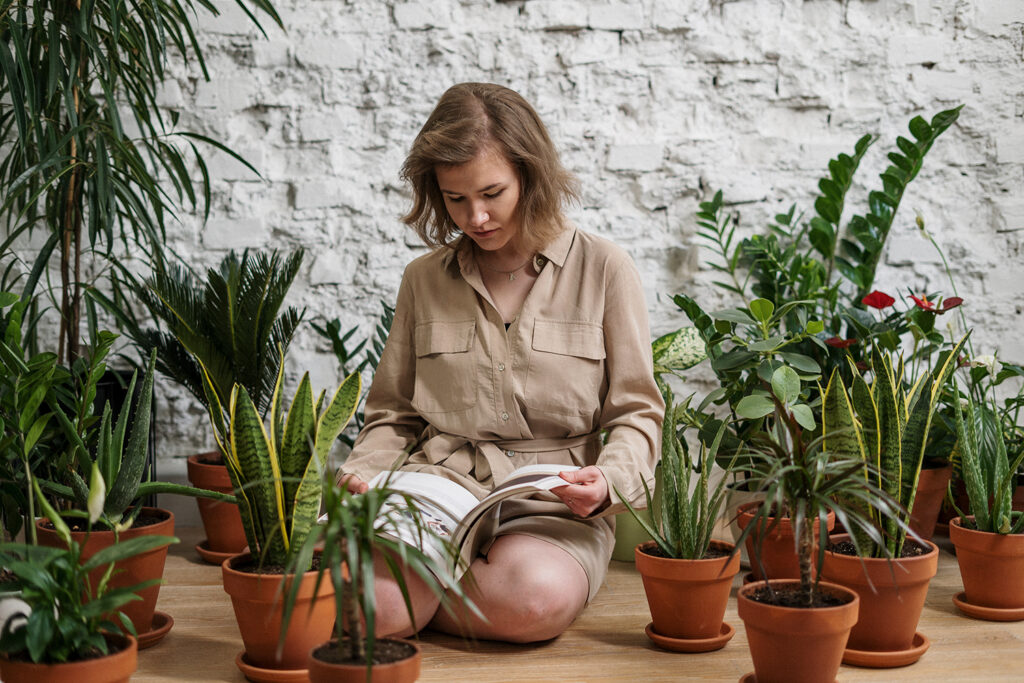Plants can upgrade a room and make it beautiful, but they can also help us overcome anxiety, depression and stress.
Since last year, our homes have become a lot more than just a place to sleep and watch tv on a lazy Sunday afternoon. If before we could escape a messy room or a tiny flat, our apartments are now not only our homes but also our offices, our gyms and the only restaurant opened in town.
Considering we now spend most of our twenty-four hours a day between the same four walls, it’s necessary to create a space where we feel happy and comfortable.
One easy way to upgrade a room or a whole home is to add a few easy-to-care indoor plants to the equation. Plants are pretty to look at and (most importantly) have many benefits that could improve moods, productivity, and general mental and physical health. We found five scientifically proven health benefits of indoor plants that will make you want to transform your home in an urban jungle.
Plants make you happier
Plants have the power to boost your mood and instantly improve the way you are feeling, just by looking at them. Nature always has a significant impact on human behaviour, and having plants at home or in the workplace has become the closest thing to a walk in nature nowadays.
According to psychologists, the colour green is soothing and can reduce stress and help the healing process. Having a few plants in your home and while you are working could have a significant impact on your mental and physical health.
Plants boost your productivity
Yes, one of the health benefits of indoor plants will even make you perform better at work. Now that our homes are also our offices, is important to create a space that is clean, tidy and that makes you feel comfortable during your working day.
It’s not easy to create a perfect working from home space, especially when we are stuck in small apartments in big cities, but it’s vital to try to create a space that is only dedicated to working (even if it’s tiny).
Boosting your mood, plants make sure that you are more concentrated and creative while absorbing noise, cleaning the air in the room, produce oxygen and looking pretty at the same time.

Plants reduce stress and fatigue
It’s no secret that people that live surrounded by nature are usually less stressed and anxious. But that’s not only true for the lucky ones that live in the countryside. Plants in our homes can have the same effect as a countryside walk, just on a smaller scale.
Plants produce phytoncides and other airborne antimicrobial compounds that help to reduce the amount of stress we perceive. These substances are used in medicine around the world (like in Japan and Russia) as well as in holistic medicine and aromatherapy.
Plants help to clear the air
As we all know, trees and plants are the reason we still have oxygen to breathe. Although, if you thought the only big trees could help, you are very wrong. Having a few small plants in your home could make a massive difference to the quality of the air you breathe every day.
The air in enclosed spaces like apartments can get quite unhealthy – especially during the winter when we tend to open the windows less – but plants release airborne antimicrobial compounds that ‘attack’ the pollution and clean the air.
Caring for plants is therapeutic
It’s proven that caring for plants can reduce physiological and psychological stress. Just as taking care of a puppy boosts our serotonin levels, seeing our plants thriving has a similar effect on our mental health.
Plants are so good for our brain that there is a type of therapy called Horticultural Therapy that uses plants and gardening as a form of therapy to help not only with depression and anxiety but also with high blood pressure and memory disorder.


